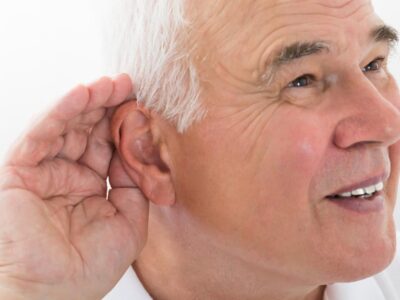Your job requires you to lift heavy items every day. You’ve come to expect back pain as part of your job. However, something felt different today. The pain caused you to fall to the floor, and you couldn’t get up without the help of your coworkers. At the hospital, they told you that you have a herniated disc.
What is a Herniated Disc?
A herniated disc, also called a ruptured disc, slipped disc, or prolapsed disc, occurs when one of the intervertebral discs between your spine ruptures or is knocked out of place. This disc, made of an outer layer called the annulus fibrosus and a gel-like center called the nucleus pulposus, acts as a shock absorber for the spine.
When a disc herniates, the nucleus pushes through the annulus and can compress nearby nerve roots or even the spinal cord, leading to:
- Severe pain in the back or legs (commonly known as sciatica)
- Weakness or difficulty walking
- Numbness or tingling in the affected area
Causes and Risk Factors: Why Do Herniated Discs Happen at Work?
Herniated discs often result from a combination of biomechanical stress and degenerative changes. At work, common risk factors include:
- Lifting heavy objects improperly (especially without bending your knees)
- Twisting while lifting or carrying loads
- Repetitive movements such as bending, reaching, or twisting
- Prolonged sitting or standing in awkward postures
- Exposure to vibrations (such as using heavy machinery or driving trucks)
High-Risk Jobs for Herniated Discs:
- Warehouse workers and movers
- Construction workers
- Nurses and healthcare professionals
- Delivery drivers
- Mechanics and factory workers
Symptoms and Complications: When a Herniated Disc Becomes a Medical Emergency
While some herniated discs heal with conservative care, serious complications can occur, including:
- Cauda Equina Syndrome: Loss of bowel or bladder control, severe weakness, and saddle anesthesia (numbness in the inner thighs and groin)
- Progressive neurological deficits: Increasing numbness, weakness, or inability to walk
- Chronic radiculopathy: Persistent nerve pain radiating down the leg
- Paralysis (in rare, extreme cases)
Seek immediate medical attention if you experience these symptoms.
Diagnosing a Herniated Disc: What to Expect
A proper diagnosis is crucial for effective treatment. Your doctor may recommend:
- MRI (Magnetic Resonance Imaging) – The gold standard for detecting disc herniations and nerve compression.
- CT Scan – Useful for evaluating bone structures and disc calcifications.
- X-rays – Rule out fractures or spinal instability.
- Nerve conduction studies and EMG – Assess nerve function and locate specific nerve root involvement.
- Physical examination – Checking reflexes, muscle strength, and sensory changes.
Treatment Options for a Herniated Disc
Non-Surgical Treatments
Many cases respond well to conservative care, including:
- Rest and activity modification
- Physical therapy: Core strengthening, flexibility exercises, posture training
- Pain management: NSAIDs, muscle relaxants, epidural steroid injections
- Alternative therapies: Chiropractic care, acupuncture, massage therapy
- Lifestyle modifications: Weight management, smoking cessation, ergonomics
Surgical Treatments
If conservative treatments fail or if symptoms worsen, surgery may be necessary. Options include:
- Microdiscectomy: Removing the herniated portion of the disc.
- Laminectomy: Relieving pressure on the spinal cord by removing part of the vertebra.
- Spinal fusion: Stabilizing the spine when instability is present.
- Artificial disc replacement: In selected cases.
Long-Term Management: Living with a Herniated Disc
For some workers, a herniated disc can lead to chronic back pain. Long-term strategies may include:
- Pain management plans: Medications, injections, physical therapy
- Lifestyle adjustments: Avoiding high-impact activities, practicing safe lifting techniques
- Emotional support: Addressing anxiety, depression, and fear of re-injury through counseling or support groups
Preventing Herniated Discs at Work: Ergonomic Strategies
Tips for Protecting Your Back:
- Lift with your legs, not your back.
- Avoid twisting while lifting.
- Use assistive devices like dollies or hoists when possible.
- Take frequent breaks during repetitive tasks.
- Request ergonomic assessments to modify your workstation.
- Follow OSHA guidelines for safe lifting and material handling.
Legal Rights: Workers’ Compensation Benefits for Herniated Discs
If you have suffered a herniated disc while performing a job-related duty, you are likely eligible for workers’ compensation benefits in California. These benefits may include:
- Medical expenses: Doctor visits, diagnostic tests, physical therapy, medications, surgery
- Temporary disability benefits: A percentage of your wages while you’re unable to work
- Permanent disability benefits: For lasting impairments
- Vocational rehabilitation: If you can’t return to your previous job
Understanding your rights under California Workers’ Compensation Law is critical. There are strict timelines and procedures, so don’t delay.
The Role of a Workers’ Compensation Attorney
Navigating a claim can be challenging, especially if you face:
- Denied claims
- Delayed benefits
- Pressure from insurance companies
- The need for Maximum Medical Improvement (MMI) evaluations
An experienced attorney at Hussain & Gutierrez Law Firm can:
- Guide you through complex paperwork
- Protect your legal rights
- Advocate for the maximum benefits you deserve
- Represent you in hearings and appeals
- Explore additional legal avenues (e.g., third-party claims, long-term disability)
Frequently Asked Questions (FAQs)
How long does it take to recover from a herniated disc?
Recovery varies based on severity. Mild cases may resolve in 4–6 weeks; severe cases or post-surgical recoveries can take 3–6 months or longer.
Can I get workers’ compensation for a herniated disc that developed over time?
Yes. Herniated discs from repetitive strain or overuse at work are often covered under workers’ comp. Medical documentation linking your condition to your work is essential.
What if my claim for a herniated disc is denied?
You have the right to appeal. Contact an attorney immediately to review your case, gather medical evidence, and file a timely appeal.
Are there permanent restrictions after a herniated disc?
Possibly. Your doctor may recommend avoiding heavy lifting, repetitive bending, or prolonged standing. These restrictions can impact your job and long-term benefits.
How does a herniated disc differ from a bulging disc?
A bulging disc extends outward but doesn’t rupture, while a herniated disc means the disc material has broken through. Herniated discs typically cause more severe symptoms.
Can a herniated disc cause permanent nerve damage?
Yes, in rare cases. Prolonged nerve compression can lead to chronic pain, muscle weakness, or even permanent loss of function. Early treatment is vital.
Take Action Now: Protect Your Health and Legal Rights
If you’ve suffered a herniated disc at work, don’t delay. Your health, finances, and future depend on getting the right treatment and legal support.
Contact Hussain & Gutierrez Law Firm today for a free consultation. We’ll help you navigate the legal process, fight for your rights, and secure the compensation you deserve.
Schedule your free case evaluation now and take the first step toward recovery and justice.



